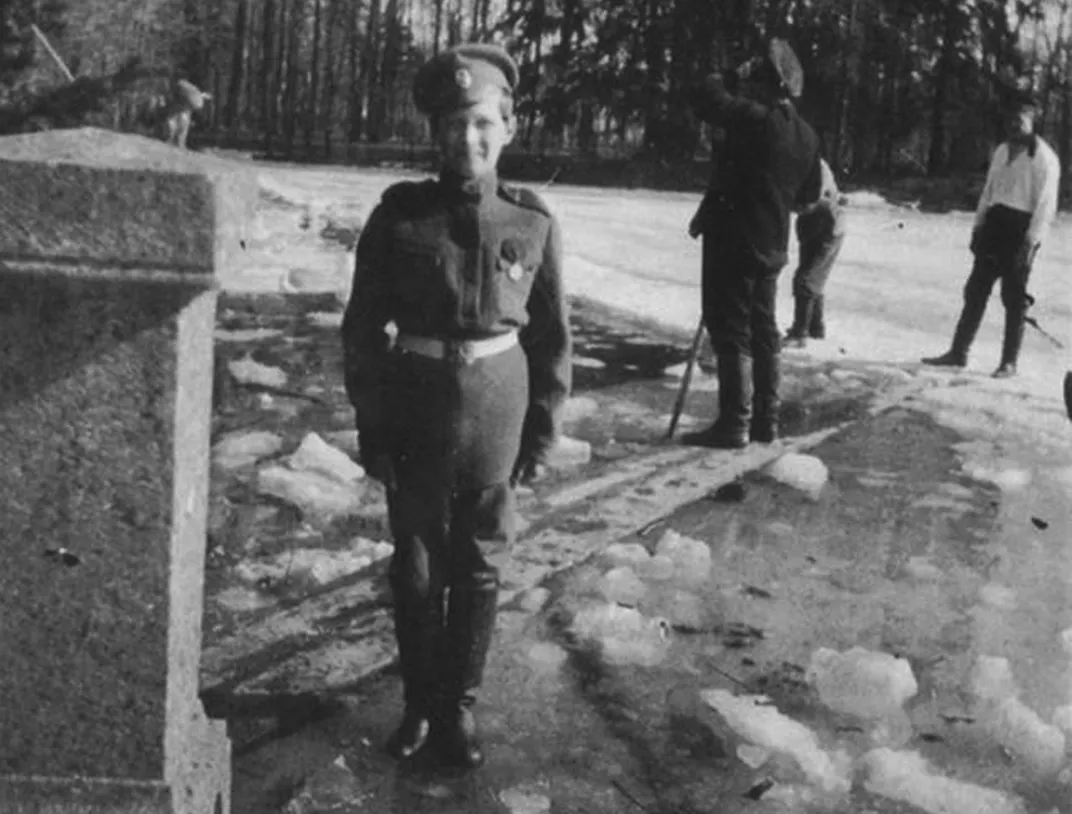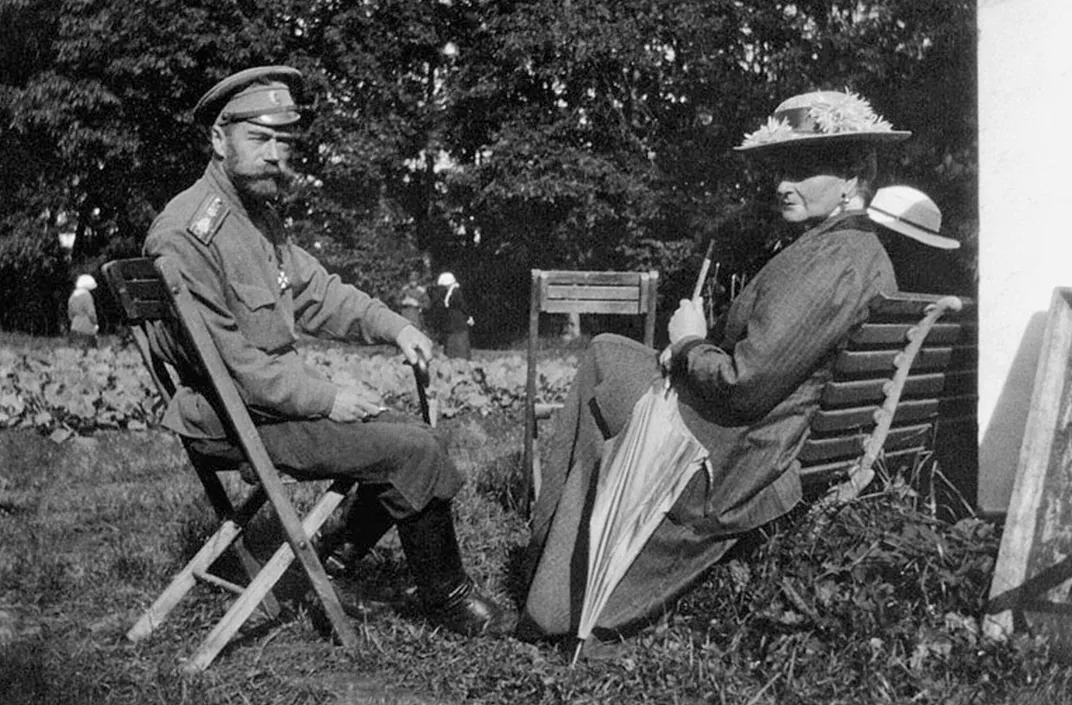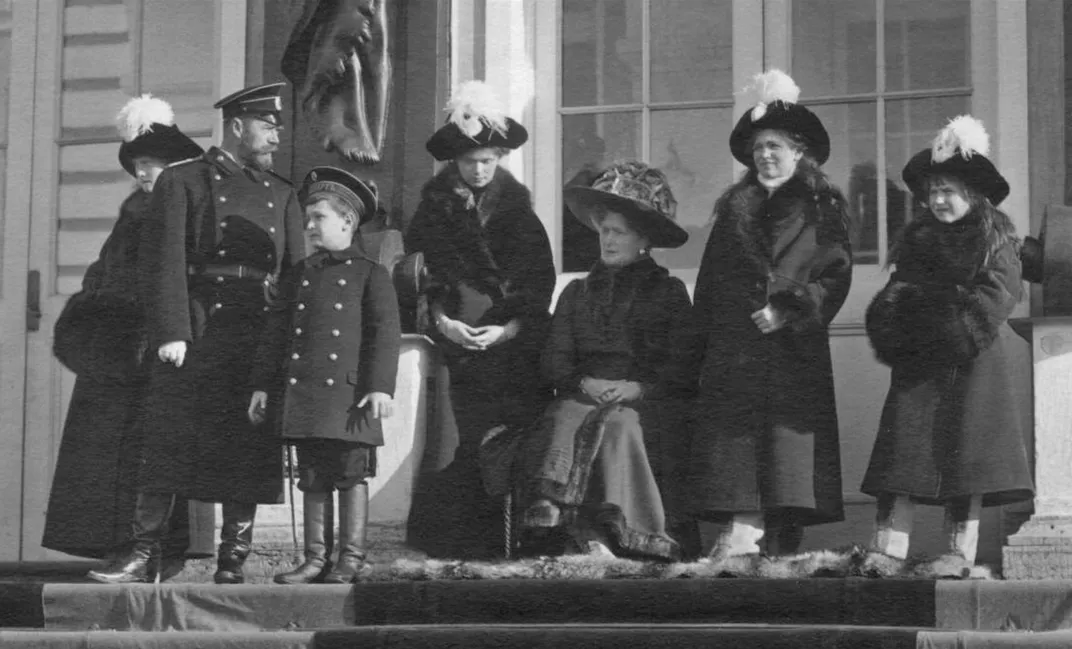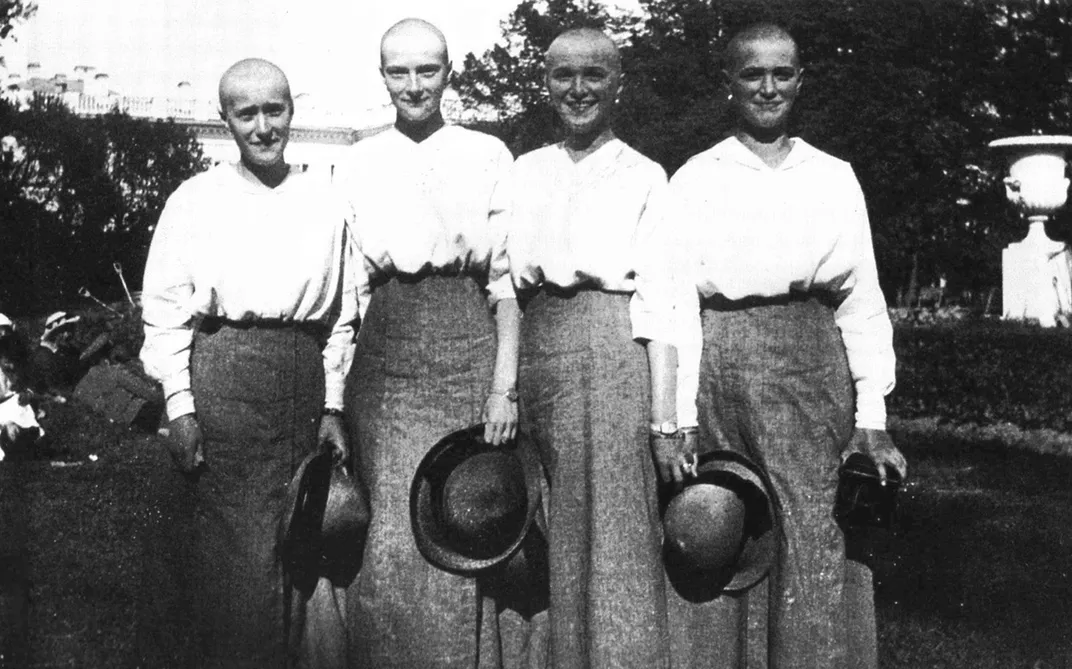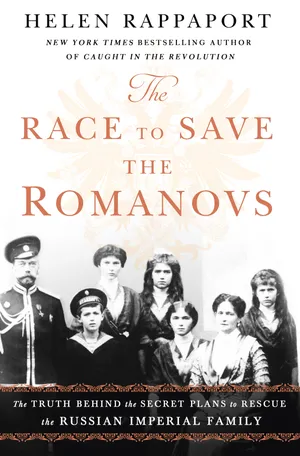A Century Ago, the Romanovs Met a Gruesome End
Helen Rappaport’s new book investigates if the family could have been saved
On the night of July 16, 1918, seven prisoners, and their four attendants, were led into a basement by roughly the same number of guards. There, they were shot, bayoneted and clubbed. Their bodies were first disposed of in a mine shaft, then retrieved and deposited into a shallow grave in the Koptayki Forest.
By the time the sun rose on Yekaterinburg, Russia, the next morning, “nothing less than ugly, crazed and botched murder” had taken place, writes Helen Rappaport. Overseeing the messy execution was Yakov Yurovsky, a Bolshevik commandant. The victims were the former Tsar, Nicholas II, his wife, Tsarina Alexandra, their five children and four loyal servants.
Rappaport, a British author who’s written extensively about the former Imperial Family and the Russian Revolution, became obsessed with the question, “Did this have to happen?” Her new book, The Race to Save the Romanovs: The Truth Behind the Secret Plans to Rescue the Russian Imperial Family, out this week, sets out to answer that question. She spoke with Smithsonian.com about what she discovered.
The Race to Save the Romanovs: The Truth Behind the Secret Plans to Rescue Russia's Imperial Family
Investigating the murder of the Russian Imperial Family, Helen Rappaport embarks on a quest to uncover the various international plots and plans to save them, why they failed, and who was responsible.
Your book covers a few different actors trying to and ultimately failing to save the royal family. Could anyone have saved them?
The Germans had the best shot when they negotiated the Treaty of Brest-Litovsk with the Bolsheviks in March 1918. It was a separate peace [agreement] during the First World War between Germany and Russia. At that point, the Germans could have insisted, as part of the deal for making peace with Lenin’s Bolshevik Government as it was then, that the Romanovs should be part of the deal.
Would the Romanovs had left if someone came to rescue them?
I don’t think they would have accepted the Germans’ help. The Romanovs thought their place was with the Russian people. It would have been hard for them to leave. What they really wanted was to go and live in obscurity, quietly in Crimea. But the provisional government, which was trying to bring in some kind of democratic constitutional form of government, could not risk having them stay within Russia because they could have been a rallying point for a counterrevolution.
Were there other obstacles?
It was also due to the logistics geographically of getting them out from Russia in the middle of a war. Obviously, in March 1917, they could not be evacuated straight across Europe because the war was going on with Germany. The only way they could have got out would have been from one of the seaports in the north, such as Murmansk. But Murmansk, of course, was frozen for most of the year, and so geography and distance played quite a big part in [not] getting them out of Russia.
How did suspicion and dislike of the Tsarina affect the family’s fate?
People were very suspicious of Alexandra’s close friendship with Rasputin. All these crazy accusations and rumors and gossip went around saying that they were German spies and they were colluding with the Germans. Because she was a German-born princess, it really made it difficult to allow her into exile, particularly in England. She was also so disliked, everywhere, even by her own royal relatives.
How did the other monarchs in Europe react to the Romanovs’ plight?
A lot of their royal relatives were not sympathetic until the children got caught up in this. They felt that the family could have prevented or defused the situation. The Romanovs were a political hot potato, so for all the monarchs it was “Let’s try and keep out of it. Let’s pass the buck to someone else.”
Even after the family was killed there was a lot of confusion surrounding their death. Why?
They were murdered in western Siberia, where there weren’t any press or diplomats. The news was effectively controlled by the Bolsheviks, and it suited them to keep everyone guessing about what had happened. They admitted rather quickly they killed the Tsar but they didn't admit for quite a while that they killed Alexandra and the children. This led to a lot of false hope and a huge amount of wasted efforts [by other monarchs to rescue them] and it opened up the floodgates then to all these later claims of miraculous survival.
How would history be different if the family had fled?
If they had left Russia, they would have lived in exile, possibly in France, where a lot of the Russian aristocracy fled, or maybe even the United States. From there, they might well have disappeared into obscurity for they never sought to draw attention to themselves. The bigger question is, what if there hadn’t been a revolution?
If Nicholas had taken the advice he was repeatedly given and had brought in serious reforms in 1904 with the establishment of the State Duma, he might have been able to initiate a process of political reconciliation, enfranchisement and economic expansion in the years before war broke out. The monarchy in Russia could, just possibly, have become a constitutional monarchy like the one we have in Britain today. But it would have needed a radical move away from the old autocratic system of government.
Just imagine a truly democratic Russia with a benign constitutional monarch like Queen Elizabeth II! It is of course a fantasy. Instead Russia exchanged one form of political oppression – the tsars – for Communism and the despotism of Stalin, the reign of terror and the gulags. And even after Communism fell in 1991, democracy failed to emerge. Under Putin, Russia today is still ruled under same old repressive system.
Why do the Romanovs still fascinate us today?
This was one of the most extensively photographed families in the world. You only have to look at the pictures of those four lovely sisters in their white dresses to understand why the murder of these innocent children sticks in people’s imaginations. The 100th anniversary of the October Revolution in 1917 passed almost unnoticed in Russia—many now consider the revolution a crime—but I think there will be a mass veneration of the Romanovs on the anniversary of their deaths in July.
/https://tf-cmsv2-smithsonianmag-media.s3.amazonaws.com/filer/14/5c/145c0752-577a-49fc-bfb4-9dca0f778020/julaug2018_a03_prologue.jpg)
A Note to our Readers
Smithsonian magazine participates in affiliate link advertising programs. If you purchase an item through these links, we receive a commission.
